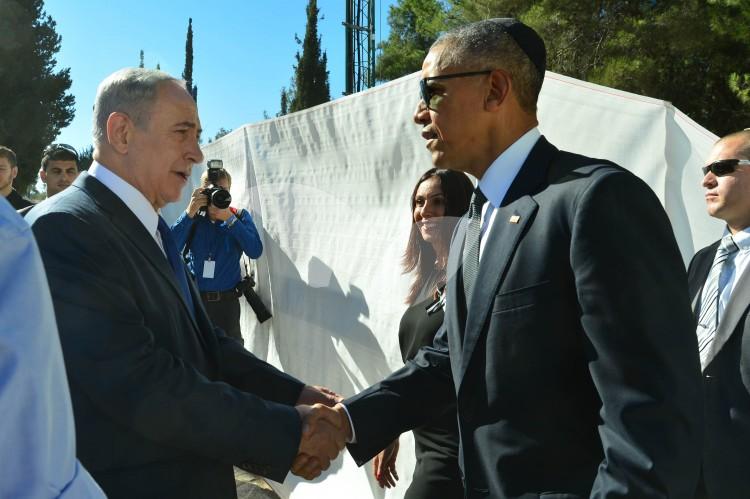Israel Hoping to Ward Off Last-Minute Obama 'Surprise'
Jerusalem, 10 November, 2016 (TPS-IL) -- As Barack Obama enters his final two months as president, Israeli officials say they are working “on multiple channels” to discourage the president from making any “drastic changes” to long-standing US policy vis-à-vis Israel before he leaves office.
One senior official at the foreign ministry said on Thursday that she could not release details of the interactions with the Obama administration, but she confirmed that the issue is a matter of concern in Jerusalem.
“I would only reiterate the repeated statements of Prime Minister Netanyahu,” the official told Tazpit Press Service (TPS). “The Israeli-Palestinian conflict will only be resolved via direct negotiations without preconditions. Public moves on the international stage, in forums like the UN Security Council, do not serve any purpose, and certainly not the cause of creating a Palestinian state.”
Israeli officials, and pro-Israel lawmakers and pundits in the United States have expressed concern for months that Obama could make a far-reaching move before the end of his term on January 20, particularly on the issue of settlement building in Judea, Samaria and eastern Jerusalem. The issue has been a frequent point of tension between Obama and Prime Minister Binyamin Netanyahu since the latter was elected in February, 2009, just three weeks after Obama took the oath of office. One source close to Netanyahu at the time said the prime minister stepped out of the Oval Office “ashen faced” following their first meeting, in May of that year, stating “we’ve got big problems” over their differences concerning the Israel-Palestinian conflict.
Later, Obama pressed Netanyahu into accepting a 10-month settlement freeze, and criticized Israel’s decision not to renew it after Palestinians refused to negotiate until the last three weeks of the freeze. Tensions over the issue, as well as over the Iran nuclear deal, have come largely to define the relationship between the two men.
Significantly, Israeli officials are not the only ones concerned that the president could make one last move to pressure Israel before leaving office. In September, 88 senators called on Obama to veto potential “one-sided” resolutions at the United Nations. The following month, a Wall Street Journal editorial raised the possibility that the outgoing president could sponsor, or allow, a Security Council resolution condemning Judea and Samaria construction.
Another possibility would be for Obama to enact new IRS regulations revoking the tax-exempt status of people or entities involved in settlement building.
The foreign ministry official acknowledged that Israeli officials are also concerned about that possibility, but she nonetheless expressed hope that President Obama’s past support for direct negotiations would define the last months of his presidency. She said consultations with American counterparts are ongoing and that she is confident the issue will be resolved in a positive, constructive spirit. She also repeated that while declarations on the international stage may be upsetting, in practice they have little impact on the Israeli-Palestinian peace process.
“[The foreign ministry] has a long history of fruitful relationships with the various branches of the State Department, including the US embassy in Tel Aviv, and we are working via many channels to resolve this issue. Like the prime minister said last month at the opening of the Knesset winter session, international moves like admitting a ‘state’ of Palestine to the United Nations don’t accomplish anything. Only direct talks between the two conflict parties can lead to a sustainable solution,” the ministry official concluded.


